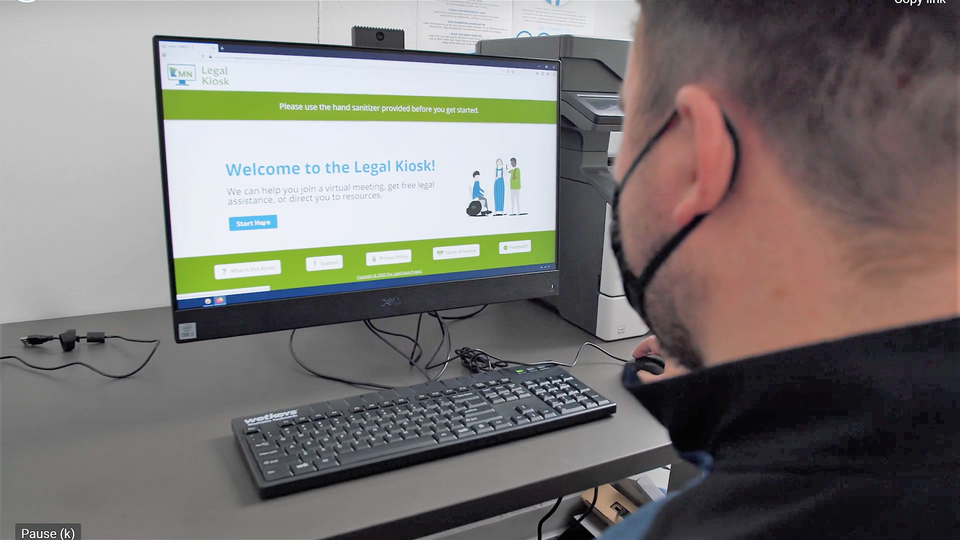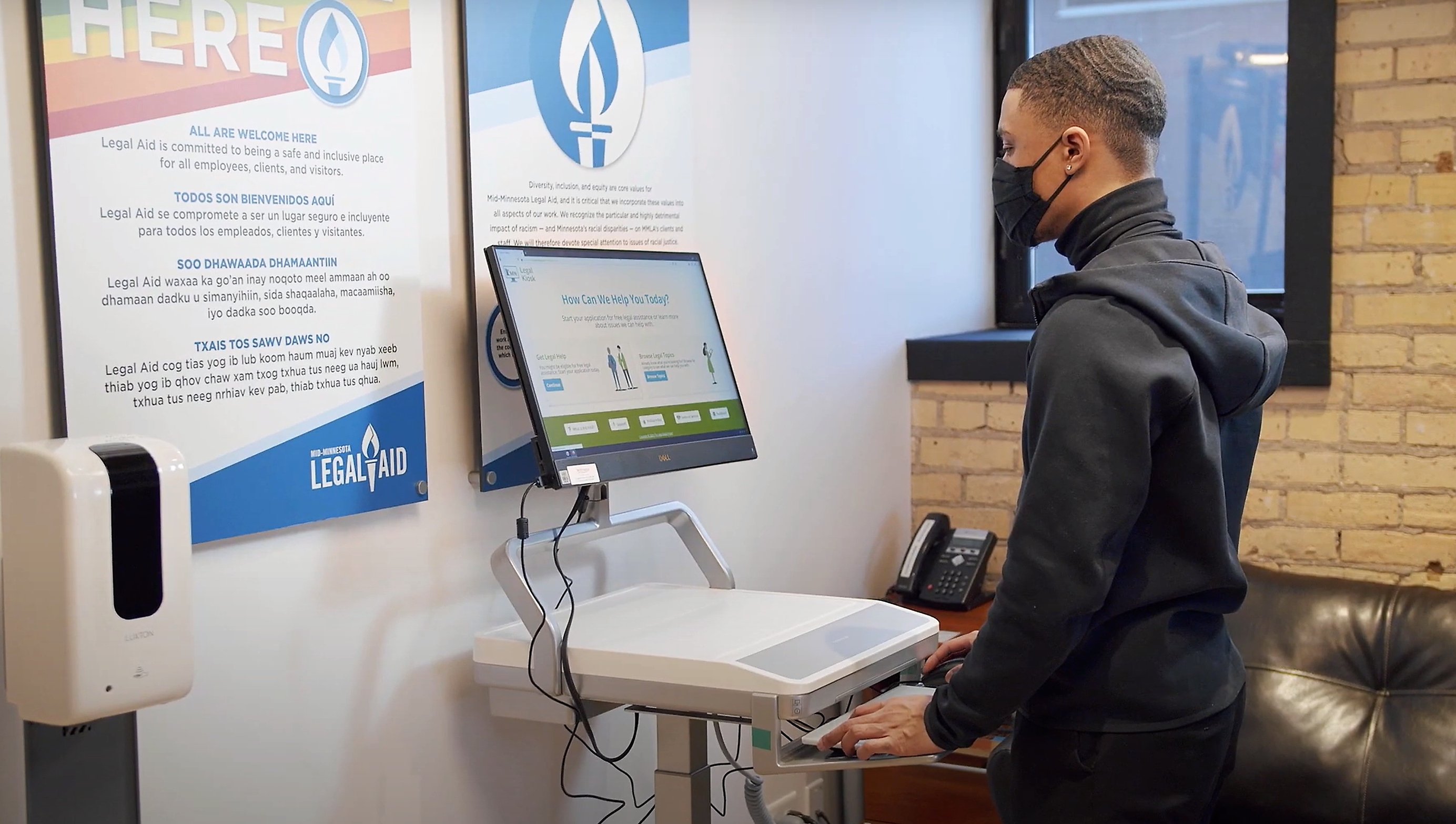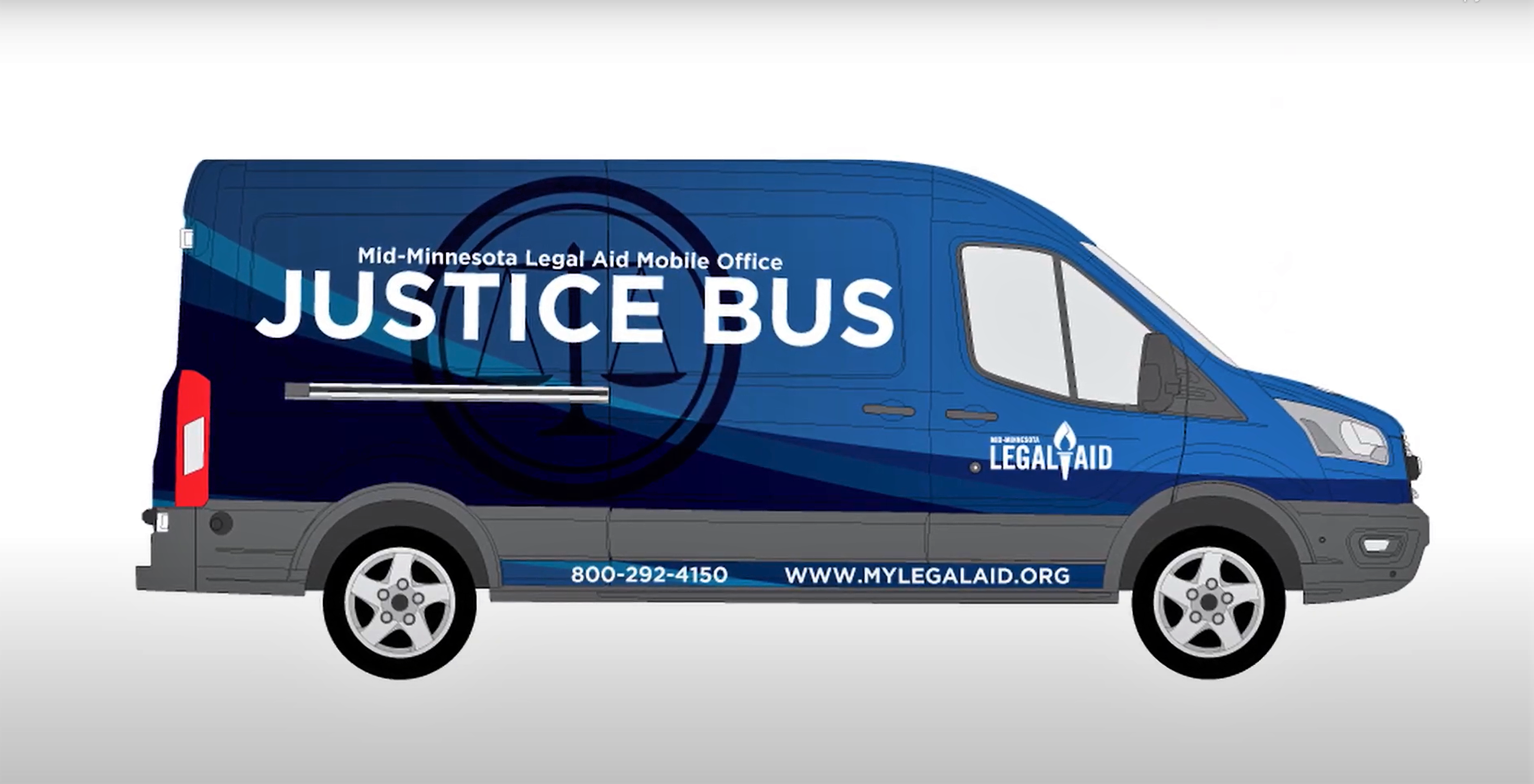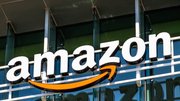Customer Experience
Minnesota legal aid deploys self-service kiosks to sustain services statewide
The Minnesota Legal Services Coalition embarked on a $3.5 million project that deployed self-service kiosks to more than 250 locations in Minnesota.

September 22, 2021 by Elliot Maras — Editor, Kiosk Marketplace & Vending Times
When the coronavirus pandemic brought court proceedings to a halt, millions were inconvenienced. None more so than people without Internet access.
The Minnesota Legal Services Coalition went into action to make sure its constituents — people who are economically disadvantaged — had access to legal services. The coalition embarked on a $3.5 million project that deployed self-service kiosks to more than 250 locations in Minnesota.
To date, the legal aid law firms have been able to serve just as many people during the pandemic as in a comparable amount of time pre-pandemic, Drew Schaffer, executive director, Mid-Minnesota Legal Aid, one of the coalition organizations, told Kiosk Marketplace in a phone interview.
There are about 700,000 visitors per year at the coalition's website, lawhelpmn.org.
 |
| A client uses a legal kiosk in a community services center. |
Pandemic spurs action
"We realized we needed a solution to get proximate to them and to meet them where they are," Schaffer, said. "That (COVID-19) was the game changer for us and we realized we had to have something different and something that bridged the digital divide for people in the communities that we serve. If people don't have those tools, and they don't have the money to buy them, then they're cut out of having even a chance at justice."
The coalition developed and submitted a funding proposal for the self-serve kiosks and buses known as "Justice Buses" under a project known as Reach Justice Minnesota to give people access to legal resources and attend court hearings, which are now mostly virtual.
About $2 million of the $3.5 million went to the kiosks, with the balance going to the Justice Buses and upgrading the organization's website as programs were being developed to address COVID specific issues, Schaffer said.
The kiosks are located at libraries, community centers, courthouses, health centers, shelters, Native American tribal centers and a variety of nonprofit partners throughout the state.
Communities in need
"People with disabilities, people living in deep poverty, Black, Indigenous, people in communities of color, people in historically marginalized communities, the elderly — they do not have the same financial resources, transportation resources, technological tools…not to mention language and literacy resources to participate equally in the legal system," Schaffer said.
The pandemic increased the demand for unemployment insurance, public benefits, health care access and housing rights, he said, noting that landlords were finding ways to circumvent the eviction moratorium.
Domestic violence was also a big issue for many people during the pandemic as more were confined to their homes.
Some restrictions have been lifted, but most proceedings are still virtual in the state.
To apply for public benefits, only online services are presently available.
 |
| Reach Justice Minnesota also deployed "Justice Buses" that allowed staff to meet with clients. |
Legal services deemed essential
"We (legal aid organizations) remained open throughout the pandemic," Schaffer said, noting the government deemed legal aid offices essential services on March 11, 2020, but staffing was limited in the offices.
"We realized it was going to be harder for us to do what we needed to do safely," he said.
2 kiosk models
There are two types of kiosks and both are ADA compliant.
Model A is on a stand and can change position. It is designed to connect to self-help resources. These kiosks allow a user to open up a case in a law firm office.
The model B is on a desk and has a screen reader. It allows a private, confidential conference with an attorney or a court. These kiosks are located in sites that also have printing, scanning and document reading equipment.
The coalition ordered the computers, desks and stands and assembled them at the locations. The only assembly needed was to place the computer onto the stand or desk.
Technology By Design, a technology consultancy based in Minneapolis, installed the software, while A 2 J Tech, a Parker Colorado enterprise which builds technology to improve justice, manages the website.
All data is cleared every time a user session ends, so no personal data is captured, said Rachel Albertson, development and communications manager, Legal Aid Service of Northeastern Minnesota.
There have been very few technical issues with the kiosks.
"We envision the impact and legacy as carrying forward beyond the pandemic, helping us to connect with client communities in new ways to deliver on the promise of equal justice for all," Dori Streit, executive director of Legal Aid Service of Northeastern Minnesota, said in a prepared statement.
For an update on how the coronavirus pandemic has affected kiosks, click here.
Images courtesy of the Minnesota Legal Services Coalition.
About Elliot Maras
Elliot Maras is the editor of Kiosk Marketplace and Vending Times. He brings three decades covering unattended retail and commercial foodservice.










